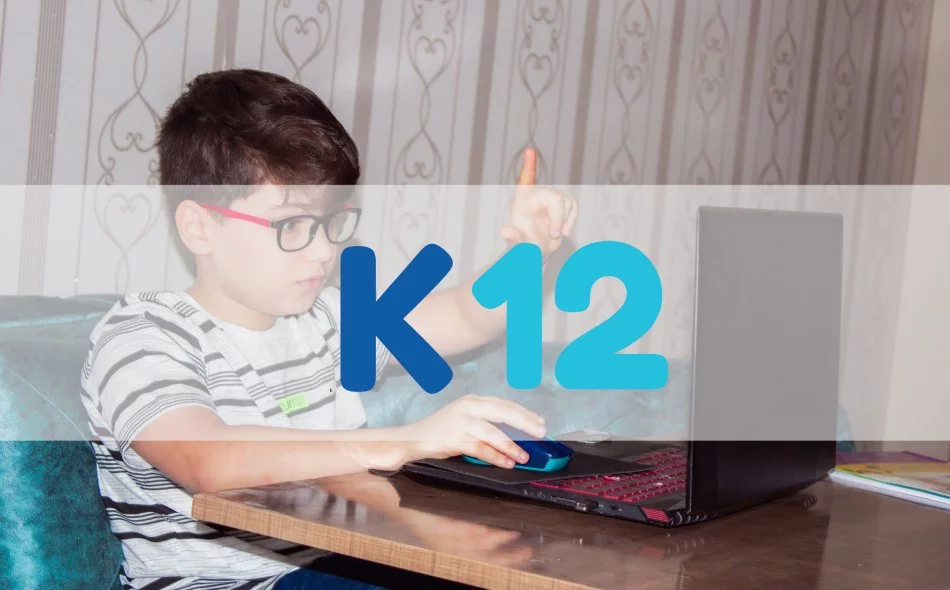As a parent, you have the great expectation to provide your children with the best education possible. But choosing the best mode of learning is challenging for parents.
Most guardians and parents in the country prefer physical learning over E-learning for some reason. However, the outbreak of the pandemic has made parents think otherwise.
Online education for K-12 students has been seen as the best option. Safety is paramount, and the best way to conquer the COVID-19 battle is to avoid large gatherings like in schools.
The initiative has been received positively by parents and guardians across the world. Most of them have resorted to enrolling their children in the E-learning system.
But there is a lot of fear among parents and guardians about the legitimacy of the learning mode. The feeling has made some to be hesitant to enroll their loved ones in online education.
We have compiled a detailed informational guide to help you make an informed decision. We have outlined some of the special features (pros) and drawbacks (cons) to consider before enrolling your child.
What is Online Education for K-12?
It is a schooling model that involves digital learning for students from kindergarten to 12th grade in the United States of America.
These virtual schools have become a great alternative for students across the world since the outbreak of COVID-19. Many parents have opted to enroll their children due to health safety needs.
The most exciting thing with online schools is that it favors those students involved in part-time work and engages in co-curricular activities.
Besides that, it is a suitable mode of learning for those children with mental or physical health problems. It allows them to participate in learning in the comfort of their homes.
But parents and guardians need to be careful when shopping for an online school. Most of these digital institutions are not accredited, and the academic certificates offered may be useless.
Pros and Cons of Online Education for K-12
The advancement in technology has replaced traditional schools with online classes in most states of the U.S. The system has the reputation of providing extensive learning among kids.
It is the best option to prepare students for tertiary education at various grades in the current century. However, choosing the best virtual school for your children can be challenging.
We recommend assessing the advantages and disadvantages of online learning for K-12 before making any decision. The information from these categories will help you make a better decision.
Pros of Online Education for K-12
These advantages include:
Accessibility
E-learning can be accessed from any place at any time. Students with health concerns and need special medical care will never be at a loss.
It is a clear indication that students can attend classes during non-traditional hours. The online study makes a real deal for those learners engaging in co-curricular activities.
The ability for students to access the learning materials 24/7 can help their performance in final exams. Learners can retake the lectures in areas they found challenging, giving them the upper hand to reflect.
Parents who are avid travelers consider online learning. You can travel around the world with your children without affecting their studies.
Flexibility
Online education is excellent when it comes to time efficiency. Learners have the opportunity to access their academic work at any time and place.
It implies that students can move at their pace. The learners can either finish a ten-week course in two weeks or take the full ten weeks to clear.
The most exciting thing is that online study allows students to review their previous work. The aim is to ensure they have a proper understanding of the entire course topics.
That’s not all. The time management skills learned from online education allow learners to balance their work-study better.
Less Expensive
Online learning is less expensive when compared to the regular academic classroom. Parents are not subjected to the cost involved in transporting their children to physical learning institutions.
Besides that, no payment is involved in the purchase of learning materials. Most of these learning resources are readily available online.
Offer Customized Learning Experience
Virtual education is highly flexible, depending on the learners’ ability level and individual requirements. The smaller class size allows the teacher to attend to each student at a time.
Besides that, it forms a greater platform for interaction between learners and teachers. Also, the facilitators can include other resources like videos to improve the learning experience.
Ease of Content Update
Information and knowledge are dynamic in the modern world. Most printed materials are forced to reprint to stay up to date.
The most amazing thing is that online learning materials can be updated without breaking the bank account. It is one of the reasons why virtual classrooms have the upper hand over traditional classrooms.
No Discrimination and Bullying
When it comes to discrimination and bullying it is well known, unfortunately, that these two are more present in traditional classrooms. These two issues affect the mental health of learners.
Digital schools have been a great alternative. There are no cases involving discrimination due to race, gender, age, religion, and physical appearance.
It is a great option for building your child’s confidence and creating a good atmosphere for their mental health.
Synergy
Continuous synergy in the online study allows every learner to contribute to the discussion and comment on their classmates’ work.
Another exciting thing is that a high level of synergy improves students’ interaction among themselves and their educators.
Cons of Online Education for K-12
Here are the disadvantages:
Discourage Social Interaction
The lively group discussions between students and educators are limited in online learning. Besides that, the face-to-face interaction that makes the learning process natural is not available.
Therefore, virtual education makes many students be social mischief when they grow up and start working in an organization that needs workers’ physical presence.
Lack of Practice-Based Learning
Online learning encourages a theory-based model of learning. There are no practical lessons, especially in those subjects that need a laboratory.
Theoretical knowledge is ideal for facts and reasoning, while practical knowledge is more hands-on and tasks. Online learning makes students unable to transfer their knowledge to the field.
Therefore, E-learning will never replace physical learning. These modes of learning require each other for the sustenance of the economy.
Lack of Technology Integration
E-learning has facilitated the popularity of technology adoption by many companies. Hence, the success of online education is reliant on technology integration.
However, not everybody can access an internet connection, and the level of computer literacy in the country among kids is low. Getting computer savvy to educate children could be expensive.
Lack of Essential Online Facilities
Most educators in the country are not trained in online methodology and delivery. Thus, the chances of having a compromised E-learning is quite high.
Virtual classrooms require a well-prepared educator. It is the only way to deliver quality education to students.
Also, creating a supportive environment in online education is tricky. Many students feel alienated from each other and their facilitators.
Effectiveness of Assessment
Many people argue that memory testing is not a measure of intelligence. But assessments are some of the classroom programs that help to measure results.
If students are not administered detailed assessments and assignments, it would not be easy to measure the result. Most online schools tend to discourage assessments.
Not Ideal for Every Subject
Sciences and applied sciences require a visit to the laboratories. Most of these subjects have topics that require practical skills and application.
Virtual classrooms lack laboratories for performing experiments. Hence, make online study is not suitable for every subject and topic.
Need Great Motivation
Online classes need a student who is dedicated and disciplined. The child should have an intrinsic motivation to attend all the classes scheduled.
However, this is something absent in many school-going kids. Most of them love sleeping and playing video games. The chances of missing classes in a week are quite high.
Presence of Distractions
Living in a neighborhood with heavy traffic and noise could be a bigger challenge. The noise will forever distract both the teacher and other learners attending virtual classes.
The chaos from the surroundings causes a lot of distractions. Hence, the learning progress of your child.
Wrap Up
The outbreak of COVID-19 has brought the education sector to a halt. Many parents prefer to keep their children away from physical learning institutions due to safety concerns.
Even if the virus vaccine is developed, many people are still willing to continue with online education for their kids.
Technology advancement in the education sector has made the learning process quite easy and comfortable for many learners.
However, online education for K-12 comes with its advantages and disadvantages. Most of the demerits outshine the merits. It is clear now that traditional classroom attendance is better than virtual classroom attendance.
Education is not about theoretical-based knowledge and skills. It should be more hands-on tasks during the application of theory-based knowledge.
Lastly, most institutions offering online learning are in the business to earn supernormal profits. Hence, they do not care about the educational welfare of the child. Parents and guardians should be careful when selecting institutions that offer online classes.




